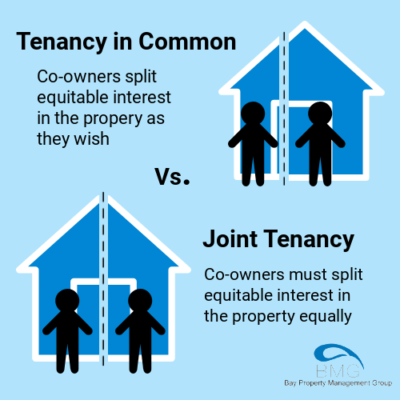Lease agreements
Landlord Responsibilities: Ensuring a Safe and Livable Space

Landlord Responsibilities: Ensuring a Safe and Livable Space
Landlords play a crucial role in providing a safe and comfortable living environment for their tenants. Understanding and fulfilling landlord duties are essential for maintaining a positive landlord-tenant relationship and complying with legal obligations. In this article, we delve into the key responsibilities that landlords should uphold.
Legal and Ethical Obligations: The Foundation of Landlord Duties
Landlords have legal and ethical obligations to their tenants. This includes complying with local housing laws, building codes, and health and safety regulations. Understanding the legal framework is essential for landlords to ensure they provide a habitable space and avoid legal complications.
Property Maintenance: Timely Repairs and Upkeep
One of the primary duties of a landlord is to maintain the property in good condition. This includes addressing repairs promptly, conducting regular maintenance, and ensuring that the property meets safety standards. Proactive property maintenance contributes to tenant satisfaction and a longer lifespan for the rental.
Ensuring Habitability: Providing a Livable Space
Landlords must ensure that the rental property is habitable and safe for tenants. This involves addressing issues such as adequate heating, plumbing, and electrical systems, as well as providing clean and sanitary conditions. Landlords should promptly address any habitability concerns raised by tenants.
Rent Collection and Financial Transparency: Clear Communication
Collecting rent in a timely manner is a fundamental duty for landlords. Additionally, landlords should maintain financial transparency by providing clear documentation of rent payments, fees, and any applicable charges. Clear communication about financial matters helps build trust and avoids misunderstandings.
Security Deposit Handling: Fair Practices
Handling security deposits is a crucial aspect of landlord duties. Landlords should follow fair practices when collecting and returning security deposits. Providing an itemized list of deductions, where applicable, and returning the deposit promptly after the lease term contributes to a positive landlord-tenant relationship.
Respecting Tenant Privacy: Balancing Access and Privacy
Respecting tenant privacy is another important duty for landlords. While landlords have the right to access the property for necessary reasons such as repairs or inspections, they must balance this with respecting the tenant’s right to privacy. Clear communication and adherence to legal entry requirements are essential.
Handling Tenant Concerns: Effective Communication
Landlords should establish effective communication channels to address tenant concerns promptly. This involves having a system in place for tenants to report maintenance issues, providing a timely response, and taking appropriate action to resolve concerns. Proactive communication contributes to tenant satisfaction.
Lease Agreement Adherence: Upholding Contractual Terms
Landlords must adhere to the terms outlined in the lease agreement. This includes respecting the agreed-upon rent amount, lease duration, and any specific terms related to property use. Upholding the contractual terms ensures a fair and lawful landlord-tenant relationship.
Compliance with Anti-Discrimination Laws: Fair Housing Practices
Landlords are obligated to comply with anti-discrimination laws and follow fair housing practices. This means treating all applicants and tenants equally, without discrimination based on race, color, religion, sex, national origin, disability, or familial status. Understanding and adhering to fair housing laws is crucial
Dynamic Living: Navigating Co-tenancy Harmony

Harmonious Living: Navigating the Dynamics of Co-tenancy
Co-tenancy, the arrangement of sharing a rented space with one or more individuals, is a common living scenario that comes with both challenges and benefits. Successfully navigating the dynamics of co-tenancy requires open communication, shared responsibilities, and a mutual understanding of each tenant’s rights and obligations. Let’s explore the intricacies of co-tenancy for a harmonious living experience.
Establishing Open Communication: The Foundation of Co-tenancy
The key to a successful co-tenancy begins with open and honest communication. From the initial discussions about shared responsibilities to addressing concerns as they arise, establishing clear channels of communication fosters a sense of trust among co-tenants. Regular house meetings or communication platforms can provide a structured way to discuss household matters and ensure everyone’s voice is heard.
Defining Roles and Responsibilities: Clarity is Crucial
To avoid potential conflicts, it’s essential to define roles and responsibilities early on. Clearly outline tasks such as cleaning schedules, bill payments, and maintenance duties. When each co-tenant understands their role within the household, it contributes to a smoother and more harmonious living environment.
Understanding Lease Agreements: Know Your Rights
Before entering into a co-tenancy arrangement, thoroughly review the lease agreement. Understand the terms and conditions, including rent obligations, lease duration, and any specific rules set by the landlord. Knowing your rights and responsibilities as co-tenants ensures that everyone is on the same page and can navigate potential challenges more effectively.
Financial Transparency: Managing Shared Expenses
Finances can be a significant source of tension in co-tenancy if not handled transparently. Establish a system for managing shared expenses, such as rent, utilities, and groceries. Use tools or apps to track contributions and ensure that each co-tenant is contributing their fair share. Financial transparency is crucial for maintaining trust and preventing disputes.
Respecting Individual Spaces: Balancing Privacy and Community
While co-tenancy involves shared living spaces, it’s equally important to respect individual privacy. Establish boundaries and communicate about personal spaces within the home. Balancing communal areas and private spaces contributes to a sense of harmony, allowing co-tenants to enjoy both shared experiences and personal downtime.
Conflict Resolution Strategies: Addressing Issues Head-On
Conflicts are inevitable in any shared living situation, but having effective conflict resolution strategies in place can mitigate tension. Encourage open dialogue, listen actively, and work together to find mutually agreeable solutions. Addressing issues promptly and respectfully contributes to a positive co-tenancy experience.
Guest Policies: Establishing Clear Guidelines
Discuss and establish guest policies to avoid potential conflicts. Determine the frequency and duration of guests, as well as any expectations regarding their behavior. Clear guidelines help create a comfortable living environment for all co-tenants and prevent disagreements related to visitors.
Emergency Preparedness: Planning for the Unexpected
In the event of emergencies, having a plan in place ensures everyone’s safety and well-being. Discuss and create an emergency preparedness plan with your co-tenants. This plan can include evacuation procedures, emergency contacts, and shared responsibilities during unforeseen circumstances.
Renewal and Departure: Navigating Changes
As lease agreements come to an end,
Housing Laws: Navigating Legalities for Tenants and Landlords

Decoding the Framework: A Comprehensive Guide to Housing Laws
Housing laws form the backbone of the landlord-tenant relationship, delineating rights, responsibilities, and legal obligations. For both tenants and landlords, a nuanced understanding of these laws is paramount to navigate the complex landscape of rental properties successfully.
Understanding Tenant Rights: The Core of Housing Laws
At the heart of housing laws lie the rights and protections afforded to tenants. These encompass a range of aspects, including the right to a habitable living space, protection against discrimination, and the right to privacy. Knowledge of these rights empowers tenants to assert themselves within the legal framework.
Landlord Obligations: Complying with Legal Standards
Conversely, landlords must adhere to specific obligations outlined in housing laws. From maintaining the property in a habitable condition to respecting tenants’ privacy, understanding and meeting these obligations is crucial. Failure to do so can lead to legal consequences and disputes that may disrupt the landlord-tenant relationship.
Lease Agreements: Legal Foundations of the Tenant-Landlord Relationship
The lease agreement is the legal document that formalizes the tenant-landlord relationship. Housing laws often dictate the permissible terms within these agreements, covering aspects such as rent increases, security deposits, and the duration of the lease. Both parties should thoroughly understand the terms before signing, ensuring a clear understanding of their respective rights and responsibilities.
Navigating Rent Control Regulations
In some jurisdictions, rent control regulations are implemented to protect tenants from exorbitant rent increases. Understanding the applicable rent control laws is essential for both tenants and landlords. Tenants can ensure fair pricing, while landlords need to comply with legal limits and procedures for adjusting rents.
Discrimination Protections: Ensuring Fair Housing Practices
Housing laws explicitly prohibit discrimination in various forms, including race, gender, disability, and more. Landlords must adhere to fair housing practices when selecting tenants, and tenants have the right to be free from discriminatory actions. Awareness of these protections is vital for fostering a just and inclusive housing environment.
Eviction Procedures: Balancing Rights and Legal Processes
When the need for eviction arises, both tenants and landlords must follow legally prescribed procedures. Housing laws outline the grounds for eviction, the notice period required, and the lawful process to reclaim possession of the property. Understanding and adhering to these procedures is crucial to avoid legal complications.
Tenant Responsibilities: Upholding Agreement Terms
Tenants, too, have responsibilities outlined in housing laws. These may include timely rent payments, maintaining the property in good condition, and adhering to the terms of the lease agreement. Understanding and fulfilling these responsibilities is key to a harmonious tenant-landlord relationship.
Security Deposits: Legal Handling and Returns
Housing laws often dictate the proper handling of security deposits. From the allowable purposes for withholding a deposit to the timeline for returning it after the lease ends, landlords must adhere to legal guidelines. Tenants should be aware of their rights concerning the security deposit to ensure a fair resolution at the end of the lease term.
Legal Recourse: Navigating Disputes and Violations
In the event of disputes or
Mastering Subletting: A Guide to Smart Temporary Rentals

Navigating Temporary Living: A Comprehensive Guide to Subletting
Subletting, the practice of renting out a part or the entirety of your leased property to someone else temporarily, can be a strategic solution for various housing needs. However, mastering the art of subletting requires a clear understanding of the process, legal implications, and effective communication. Let’s explore this avenue for temporary rentals.
Understanding the Subletting Process: A Step-by-Step Overview
Before delving into the world of subletting, it’s crucial to understand the process. Begin by reviewing your lease agreement to check if subletting is allowed. If it is, follow any specific procedures outlined in the agreement. Typically, subletting involves finding a subtenant, getting their approval, and ensuring all parties are aware of their responsibilities.
Legal Considerations: Navigating the Legal Landscape of Subletting
Subletting comes with legal considerations that vary based on location and lease agreements. Familiarize yourself with local tenant laws and regulations to ensure you’re compliant. Additionally, communicate openly with your landlord about your intention to sublet, obtaining any necessary approvals in writing. This transparency helps mitigate potential legal issues down the road.
Finding the Right Subtenant: The Key to a Successful Sublet
Identifying a suitable subtenant is critical for a successful subletting experience. Consider factors such as reliability, compatibility, and their ability to adhere to your lease conditions. Conduct a thorough screening process, including background and credit checks, to ensure a trustworthy subtenant who will respect your property and obligations.
Clear Communication: Establishing Transparency with Your Landlord
Open and transparent communication with your landlord is pivotal when considering subletting. Before finalizing any arrangements, discuss your plans with your landlord and seek their approval. Provide detailed information about the subtenant, including their background and intended duration of stay. Having your landlord’s blessing ensures a smoother subletting process.
Lease Agreement for Subtenants: Setting Clear Expectations
Once you’ve secured your subtenant and obtained approval from your landlord, it’s time to establish a lease agreement. Clearly outline the terms and conditions of the sublet, including rent, duration, and any specific rules that apply. A comprehensive lease agreement helps prevent misunderstandings and sets expectations for all parties involved.
Checking Insurance Coverage: Protecting Your Interests
Evaluate your existing rental insurance policy to understand its coverage concerning subletting. In some cases, you may need to adjust or expand your coverage to protect yourself and your subtenant adequately. Ensuring that all parties are covered provides peace of mind and safeguards against potential liabilities.
Property Maintenance during Subletting: Balancing Responsibilities
While you may not be physically present during the subletting period, your responsibilities for property maintenance persist. Clearly define maintenance expectations in your lease agreement, specifying whether the subtenant is responsible for certain tasks. Regular communication with the subtenant ensures a well-maintained property and a positive living experience.
Monitoring Sublet Compliance: Stay Involved in the Process
Even after securing a subtenant, it’s essential to stay involved in the subletting process. Regularly check in with your subtenant and monitor their compliance with the agreed-upon terms. Address any concerns promptly and
Navigating Rental Property Regulations: A Comprehensive Guide

Navigating Rental Property Regulations: A Comprehensive Guide
In the dynamic landscape of real estate, understanding and adhering to rental property regulations is crucial for both landlords and tenants. This comprehensive guide will walk you through the key aspects of these regulations, providing valuable insights to ensure a smooth and legal rental experience.
Understanding Local Laws
Before diving into the world of rental property regulations, it’s essential to recognize that these laws vary from one location to another. Each city, state, or country may have its own set of rules governing landlord-tenant relationships. Therefore, it’s crucial to familiarize yourself with the specific regulations applicable to your area.
Lease Agreements: The Foundation of Legal Protections
A well-drafted lease agreement serves as the foundation for a successful landlord-tenant relationship. This document outlines the terms and conditions of the rental arrangement, including rent amount, payment due dates, maintenance responsibilities, and more. It’s imperative for both parties to thoroughly review and understand the lease agreement before signing.
Tenant Rights and Responsibilities
Tenant rights are an integral aspect of rental property regulations. It’s crucial for landlords to respect these rights, which often include the right to a habitable living space, privacy, and protection against unfair eviction. Likewise, tenants have responsibilities outlined in the lease agreement, such as timely rent payments and proper property maintenance.
Landlord Obligations and Responsibilities
Landlords, too, have specific obligations to fulfill. This may include ensuring the property meets health and safety standards, promptly addressing maintenance issues, and respecting the tenant’s right to quiet enjoyment. Understanding and fulfilling these obligations is essential for a positive landlord-tenant relationship and legal compliance.
Security Deposits: Guidelines and Best Practices
Security deposits are a common source of disputes between landlords and tenants. This section explores the regulations surrounding security deposits, including the maximum allowable amount, the timeline for refunding, and the conditions under which deductions are permissible. Both parties should be well-informed about these regulations to prevent conflicts.
Rent Increases: Legal Constraints and Considerations
Landlords often need to adjust rent prices due to various factors such as property value appreciation or increased maintenance costs. However, rental property regulations impose constraints on the frequency and magnitude of rent increases. This part of the guide delves into the legal considerations surrounding rent adjustments, offering clarity on what’s permissible.
Navigating Evictions: Legal Procedures and Tenant Protections
Evictions are a last resort, but when necessary, landlords must follow legal procedures. This section outlines the steps involved in an eviction, emphasizing the importance of adherence to regulations to protect both parties. Tenant protections during the eviction process are also discussed to ensure fair and lawful proceedings.
Stay Informed and Seek Professional Advice
Rental property regulations are subject to change, so it’s crucial to stay informed about updates in local laws. Additionally, seeking professional advice from legal experts or property management professionals can provide valuable insights and guidance tailored to your specific situation.
In conclusion, navigating rental property regulations is a fundamental aspect of a successful and legally compliant landlord-tenant relationship. By understanding
